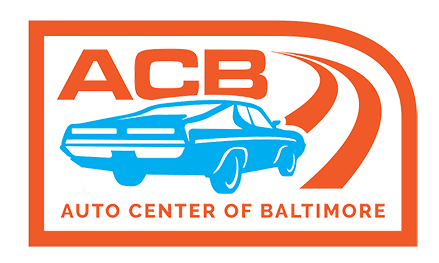How to Utilize Used Cars to Beat the Depreciation Curve
Posted Thursday, Feb 22, 2024

Used cars offer a reliable and smart way to beat the depreciation curve by relying on the right buying strategies for purchasing a vehicle. With a basic understanding of depreciation, car owners can make informed decisions to minimize their car’s depreciation while maximizing their value.
Let’s learn more about how to beat the depreciation curve with used cars.
Buying Smart: Selecting the Right Used Car
Research and Comparison
Thorough research and comparison shopping are essential in identifying used cars with lower depreciation rates. Utilizing online resources, such as car comparison websites and forums, allows prospective buyers to gather valuable insights into various models' depreciation trends. By comparing factors such as initial cost, depreciation rates, maintenance expenses, and resale value projections, individuals can make informed decisions that align with their budget and long-term financial goals. Seeking input from trusted automotive experts or seeking out professional appraisals can provide further guidance in identifying used cars that offer the best value proposition.
Low-Mileage Advantage
Choosing vehicles with lower mileage can significantly mitigate depreciation and prolong the car's value retention over time. Low-mileage cars typically experience less wear and tear, resulting in fewer maintenance issues and higher resale values. When considering used cars, buyers should prioritize vehicles with lower mileage whenever possible. While these cars may initially command a higher price, their reduced depreciation rates and potential for extended longevity often justify the investment in the long run. Also, opting for low-mileage vehicles provides buyers with the added assurance of acquiring a well-maintained and lightly used car, further enhancing their overall value proposition.
Brand Reliability
Certain automotive brands and models are renowned for their exceptional reliability and resistance to depreciation. By selecting vehicles from these brands, buyers can minimize the risk of substantial value depreciation over time. Brands such as Toyota, Honda, and Subaru, among others, have established reputations for producing durable and long-lasting vehicles that hold their value well in the used car market. Models with high demand and a strong resale value track record, such as the Toyota Camry or Honda Civic, offer buyers confidence in their investment's longevity and potential for future resale value retention.
Maximizing Value: Maintenance and Care
Routine Maintenance
Regular servicing is paramount to maintaining a used car's value over time. Scheduled maintenance tasks, such as oil changes, fluid checks, tire rotations, and brake inspections, help ensure the vehicle's optimal performance and longevity. Neglecting routine maintenance can lead to mechanical issues, decreased fuel efficiency, and accelerated wear and tear, all of which contribute to depreciation. By adhering to the manufacturer's recommended maintenance schedule and addressing any issues promptly, owners can preserve their used car's value and minimize the depreciation curve.
Documentation
Keeping comprehensive records of maintenance and repairs is crucial for enhancing a used car's resale value. Documentation should include service records, receipts, and invoices detailing all maintenance tasks and repairs performed throughout the vehicle's ownership. This documentation serves as a testament to the car's maintenance history and demonstrates to potential buyers that the vehicle has been well-maintained and cared for over time.
Cosmetic Upgrades
Minor cosmetic enhancements can significantly improve a used car's perceived value and appeal to potential buyers. Simple upgrades, such as professional detailing, paint touch-ups, or replacing worn-out interior components, can breathe new life into the vehicle and make it more attractive in the resale market. Investing in high-quality floor mats, seat covers, or car accessories can further enhance the car's aesthetic appeal and differentiate it from similar models on the market. While cosmetic upgrades may require some investment upfront, they can yield significant returns in terms of resale value and overall desirability.
Proper Usage
Owners should store the vehicle in a garage or covered parking area whenever possible to protect it from the elements and minimize exposure to environmental factors that can cause damage. Also, practicing safe driving habits, avoiding aggressive acceleration and braking, and adhering to recommended weight limits can help prevent premature wear on the vehicle's components. By treating the car with care and respect and following proper usage guidelines, owners can extend its lifespan and maintain its value for years to come.
Certified Pre-Owned (CPO) Programs: An Alternative Approach
Benefits of CPO Vehicles
Certified pre-owned (CPO) vehicles offer numerous advantages over traditional used cars. One key benefit is the assurance of quality and reliability provided by the manufacturer-backed certification process. CPO vehicles undergo rigorous inspections and must meet strict criteria set by the manufacturer to qualify for certification. As a result, buyers can have confidence in the vehicle's condition and performance. CPO programs often include extended warranties, providing added peace of mind and protection against unexpected repairs. By opting for a CPO vehicle, buyers can enjoy the benefits of owning a nearly new car at a fraction of the cost, without sacrificing quality or reliability.
Cost Considerations
While CPO vehicles may have a slightly higher price tag compared to non-certified used cars, the long-term savings and value retention offered by CPO programs often justify the investment. CPO vehicles typically come with lower interest rates and better financing options compared to traditional used cars, making them a more affordable option in the long run. Also, the extended warranties and thorough inspections included in CPO programs can help prevent costly repairs down the road, further enhancing the vehicle's value proposition. By factoring in the potential savings and benefits of CPO programs, buyers can make a more informed decision and maximize their investment in a quality pre-owned vehicle.
Finding Reputable Dealerships
When shopping for a CPO vehicle, it's essential to find a reputable dealership that offers reliable CPO options. Buyers should research dealerships thoroughly, reading reviews and testimonials from previous customers to gauge their reputation and credibility. Buyers should inquire about the specific certification process and inspection criteria used by the dealership to ensure transparency and quality assurance. Choosing a dealership with a solid track record of customer satisfaction and a commitment to excellence in their CPO program ensures buyers can trust the vehicle's condition and reliability, maximizing their satisfaction and value retention.
J D B of GB Inc Promise the Best Deals for Used Cars
At the Auto Center of Baltimore, you can find incredible value by exploring a range of used cars that make it possible to beat the depreciation curve. Link up with the best car dealership experts and get a quote for your needs.
Contact us today.

